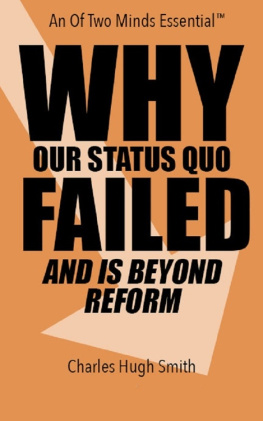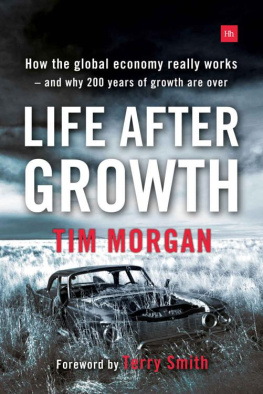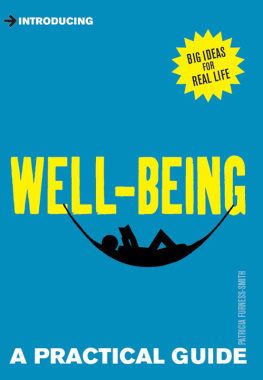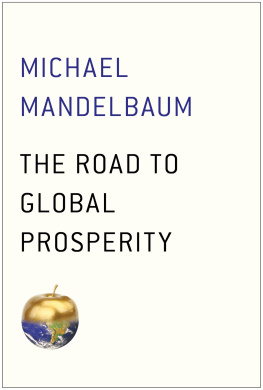Survival+
Survival+:
Structuring Prosperity for Yourself
and the Nation
Charles Hugh Smith
Introduction
Since launching my blog www.oftwominds.com in May 2005, nothing seemed more important than warning readers that the unsustainably leveraged credit-mad global financial system was poised to break down. Once the system finally crashed in late 2008, my goal switched to writing a practical guide for not just surviving the coming Great Transformation but prospering: a concept I called Survival+ (Plus). This requires liberating ourselves from failed models of credit expansion, resource depletion, financial looting and a counterfeit prosperity built entirely on debt.
I immediately ran into several great difficulties. Many others had foreseen the same calamity, and their focus narrowed on individual survival: relocating to a remote/sustainable spot and preparing for societal collapse by stockpiling self-defense and food.
While prudent and practical on a short-term timeline, this response struck me as incomplete on several levels. Most importantly, stockpiling six months' supplies would not sustain anyone through a 20-year Crisis and Transformation; their own Crisis was simply being delayed a relatively short time. In other words: "what happens in month seven"?
Secondly, many "survivalist" proponents focus on individual preparation, as if a single person or household can prosper without a stable, caring community for reciprocal support. This notion ran counter not just to my own experience but to all of human history. While I understood the desire to "opt out" and become an Isolationist--a solution to general turmoil which has roots going back to the dissolution of the Roman Empire and the Warring States era in ancient China--I felt a more practical, longer-term option to Isolationism should also be presented.
The second great difficulty is that individuals, households and communities exist in larger units: city-states, counties, nations and continents. Even if nation-states were to break apart, the world would remain tightly interconnected. Events, weather, shortages and surpluses in distant places would continue to impact us all. States (by which I mean all forms of government) will continue to extend control over resources and wealth.
Trade has been a key component of security and prosperity since the dawn of civilization. Long before fossil fuels dominated the global economy, land and sea trade in both goods and innovations bound Asia, the Mideast and Europe. Thus a retreat to isolated islands of self-sufficiency, while understandable and practical on one level, does not align with what history teaches us about prosperity. Prosperity ultimately depends on stable communities, surplus production and trade. These essentials have been largely ignored in analyses of the coming Great Transformation.
Thus our individual survival and prosperity are inextricably bound up in larger contexts: we cannot just ignore community, State and trade forces as if they will cease to exist. Viewing ourselves in isolation is ultimately misleading.
That is why I subtitled this book "Structuring Prosperity for Yourself and the Nation." To believe that we can prosper individually without regard for the actions of our fellow citizens and the State (government) is simply not practical. Yes, a handful of very rugged people have the experience required to live in the deepest remains of wilderness; but the wilderness cannot support more than a handful of people, and most of us do not have the requisite skills or ruggedness to survive that splendid isolation.
This, then, is a practical book for the rest of us.
As I organized the book, another great difficulty quickly arose. I realized that the way a problem is phrased implicitly stakes out the eventual solution. As a result, the greatest challenge in understanding our plight, both as individuals and communities, is essentially conceptual. The forces which benefit most from the status quo are pouring all their prodigious resources into framing the "problems" in such a way that the "obvious solutions" leave their own power, influence and wealth intact.
Lest you wonder how this works, recall that all through the initial phase of the financial crisis in 2008, the mainstream media and standard-issue financial punditry (SIFP) blamed the entire crisis on foolish low-income homebuyers who had chosen to finance their purchases with subprime mortgages.
Framed in this way, the "problem" appeared to be caused by credulous citizens in the lower socio-economic levels. The "solution" was thus to eliminate these people from the pool of potential homebuyers, and auction off their foreclosed homes to worthier buyers.
But subsequent events revealed this framing of the problem to be highly selective: the "problem" extended far beyond feckless subprime borrowers into the top rungs of American Capitalism: the money-center and investment banks, and a politically driven absence of oversight by the very governmental agencies tasked with protecting the public.
The status quo's convenient "framing of the problem" insured that any "solutions" would leave their power, wealth and influence entirely intact; only the impoverished subprimers would suffer, not those who profited so immensely from the housing/credit bubble.
It was thus clear that a practical analysis of the crisis and coming Transformation requires a deep understanding of how "solutions" are set in the framing of the "problem." Indeed, what is "obvious" must be questioned on the deepest levels, for what is "obvious" has two powerful characteristics: it can be managed/manipulated via the mass media, and it directs "solutions" which leave the rentier-financial Power Elite (what I call the Plutocracy ) intact. (Key concepts are italicized when introduced.)
The nature of propaganda in a so-called free State must then be explored in depth as well.
The last great difficulty is also conceptual. It is relatively straightforward to present the causes of the coming global crisis: resource depletion, disintegration of the credit bubble, demographics, etc. Many books do a fine job of outlining the nature of these interlocking crises.
The books attempting to present solutions typically focus on either individuals (along the lines of "get rich as the world falls apart") or idealized policy "fixes" based on narrow academic understandings of large-scale structures (recommendations on G-20 trade policies, etc). The flaw in both approaches is that neither flows from what I call an integrated understanding of the actual problems. Practical solutions must follow from this integrated understanding. Without such a comprehensive conceptual framework, then all proposed solutions will be ungrounded and thus dangerously misleading.
Any "solution" which ignores key elements of the problem is doomed to solve nothing. As in our example of the so-called "subprime crisis," the "solution" of limiting uncreditworthy borrowers did nothing to address the actual problems: highly profitable fraudulent practices riddling every level of the mortgage/rating/securities industries, perverse incentives that created unprecedented opportunities for windfall exploitation , over-reach and looting.
I cannot claim that reaching such an integrated understanding will be easy. Many of the concepts presented here may be unfamiliar and thus difficult to grasp at first. Many are so alien to status quo "explanations" that they may well strike you as the opposite of "obvious." But since I have thought about these concepts and forces for years, they seem "obvious" to me. In the language of our Declaration of Independence: I hold these truths to be self-evident.
So let us begin.
We stand on the threshold of a Great Transformation that will unfold over the next 20 years--a generation. The exact turn and sequence of events is unknown, but a clear-eyed appraisal of the forces, trends and cycles already at work will help us, collectively and as individuals, weather the challenges and turn what could be a catastrophe into a positive transformation.
Next page








